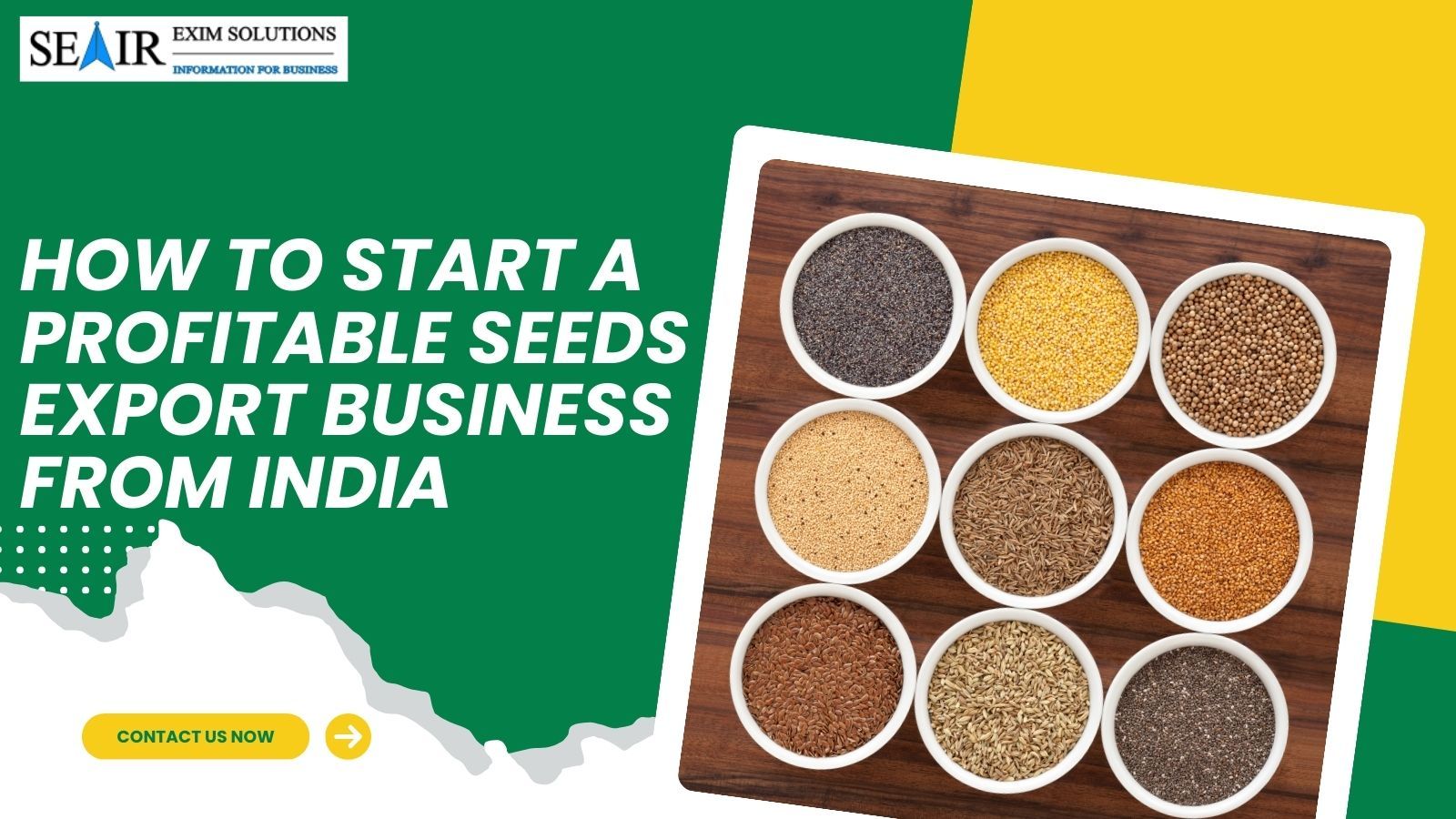India’s vast agricultural diversity makes it a powerhouse for global seed exports. From oilseeds and grains to pulses and spices, Indian seeds are in high demand worldwide. With a relatively low investment and higher profitability compared to commercial crops, starting a seeds export from India is an excellent business opportunity. This guide will walk you through the essential steps to launch and grow a successful seeds export business, using the latest market insights and practical strategies.
Why Seeds Are Vital in Agriculture and Trade
Seeds are the foundation of all agricultural production. They contribute up to 25% of productivity and serve as the starting point for producing vital crops such as wheat, rice, corn, soybeans, groundnuts, sunflower, and a range of pulses. Given the increasing demand for organic and high-quality seeds globally, India is well-positioned to become a dominant player in the international seed market.
Scope of Seeds Export from India
India exports an impressive range of seeds, including sunflower, mustard, sesame, cumin, tamarind, groundnuts, and cotton seeds. The seeds export from India has experienced substantial growth due to favorable climate conditions, agricultural research, and state support. Indian states like Gujarat, Rajasthan, Madhya Pradesh, Karnataka, and Maharashtra play a crucial role in producing oilseeds and other commercial varieties.
In recent years, seeds export data shows consistent growth in both volume and value. For example, groundnuts alone contributed over $220 million in exports in FY 2023. India exported more than 177,000 metric tons of groundnuts to over 80 countries, including Indonesia, Vietnam, and Iran.
Steps to Launch a Seeds Export Business from India
1. Conduct Market Research
Begin by understanding global demand and identifying top-performing seed categories. Use platforms like Seair Exim Solutions to analyze seeds export data, understand international buyer behavior, and discover high-demand countries. Look into markets like Africa and Asia for large import volumes, particularly Kenya import data and Liberia Trade Data, to identify new trade opportunities.
2. Choose the Right Seeds to Export
Top exported seeds include:
Mustard seeds
Sesame seeds
Groundnuts
Cumin seeds
Cotton seeds
Tamarind seeds
Keep in mind that some countries require phytosanitary clearances and pest risk analysis before importing seeds. Review the Kenya importer data and export data Liberia to align your offerings with market demand and compliance.
3. Get the Necessary Licenses and Documentation
Before you can start exporting, you must obtain approval from India’s Directorate General of Foreign Trade (DGFT) through the EXIM Committee. Here are the key documents required:
Form A application
Importer-Exporter Code (IEC)
Company registration certificate with Memorandum of Association (MOA)
Business PAN card
Field trial performance data
Lease/rent agreement for 3 years
C&F agreement
Proof of identity (Aadhar, PAN, etc.)
Location map and photo attested by a gazetted officer
Acquiring these documents and licenses ensures your compliance with Indian export laws.
India’s Position in the Global Seeds Export Market
India ranks among the top exporters of oilseeds and pulses globally. Seeds export data from FY 2021–2022 shows that India exported oilseeds worth over $1 billion. In September 2022 alone, oilseed exports reached $59.11 million, marking a year-on-year growth of 17.47%.
Major Export Markets:
Oilseeds: USA, UAE, Netherlands, China, Singapore, Germany
Groundnuts: Indonesia, Vietnam, Philippines, Iran
Sesame Seeds: South Korea, Vietnam, Russia, Germany
Sowing and Cumin Seeds: USA, Netherlands, Bangladesh, UAE
Countries like Kenya and Liberia are also emerging as valuable trade partners, and exporters are advised to frequently consult Kenya import data and export data Liberia for current trade trends and opportunities.
Top Seed Exporters in India
The competitive seed market is led by major players who have established trust and efficiency in export practices. Some of the leading seed exporters in India include:
SeedEXIM
HL Agro
Bombay Super Hybrid Seeds Ltd.
Yuvaraju Agro Impex
Dhaval Agri Exports LLP
Savaliya Agri-Commodity Export Pvt. Ltd.
SGS SA
Pisum Foods
These companies have expanded into global markets by focusing on high-quality seeds, timely deliveries, and meeting international standards.
How to Find International Buyers for Seeds
Finding buyers is crucial for your success. Here's how you can connect with them:
Participate in international trade fairs and agricultural expos.
Join online B2B platforms such as Alibaba, TradeIndia, or IndiaMART.
Register on trade portals that offer data insights such as Seair Exim Solutions.
Build partnerships using Liberia Trade Data and Kenya importer data to locate active buyers.
Creating a strong digital presence through SEO-optimized websites and social media platforms can also increase visibility among global seed importers.
Export Pricing and Logistics
Pricing plays a crucial role in establishing competitiveness. Consider these factors:
Freight costs
Insurance and warehousing
Government taxes and duties
Packaging and labeling requirements
Aim for a balance between competitive pricing and quality assurance. The key to success in the seeds export from India business is delivering reliable, high-quality products at market-driven prices.
Final Thoughts
Starting a seeds export from India can be a lucrative venture if done with the right strategy, market understanding, and regulatory compliance. From acquiring the necessary licenses to analyzing seeds export data, every step plays a vital role in building a sustainable and profitable export business. Leading seed exporters in India have already tapped into markets like Africa and Southeast Asia by leveraging trade data and smart marketing.
For those looking to break into new regions, consulting Kenya import data and export data Liberia can provide you with insights to refine your business plan. Whether you're exporting mustard seeds or sesame seeds, the global market is ripe for Indian seed suppliers. With the right approach, you can position yourself as a key player in the international seed trade.
